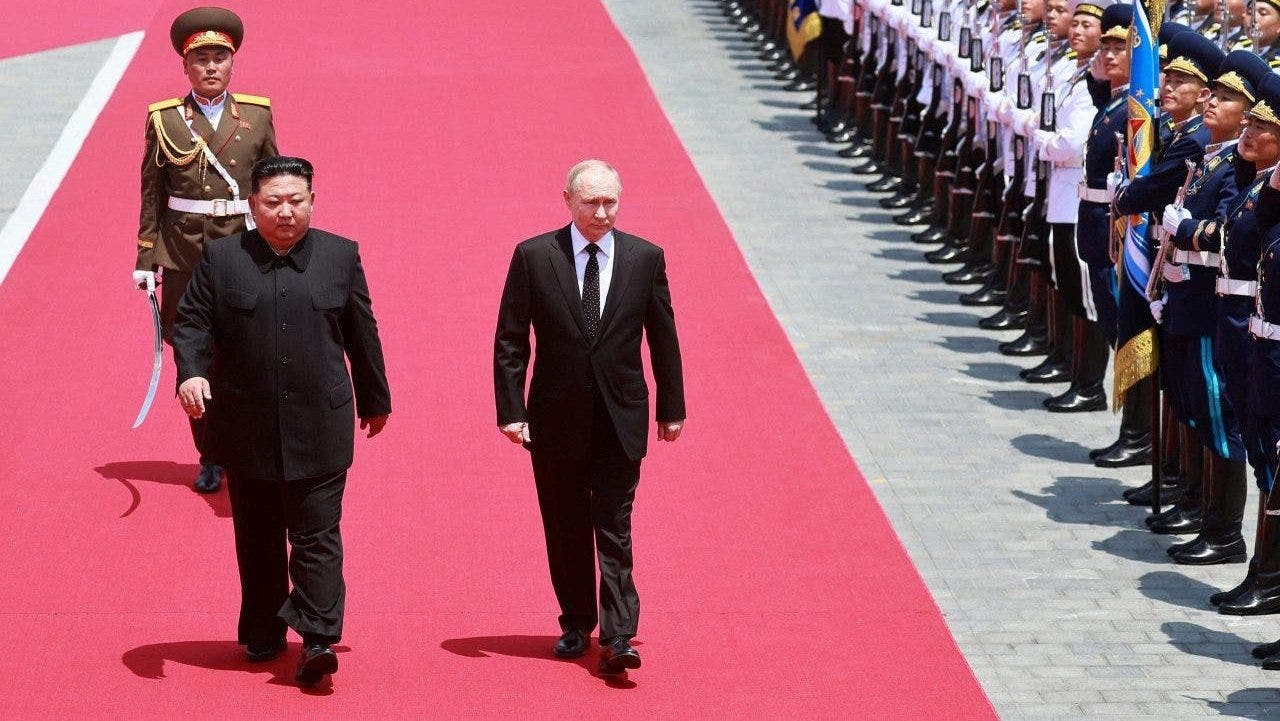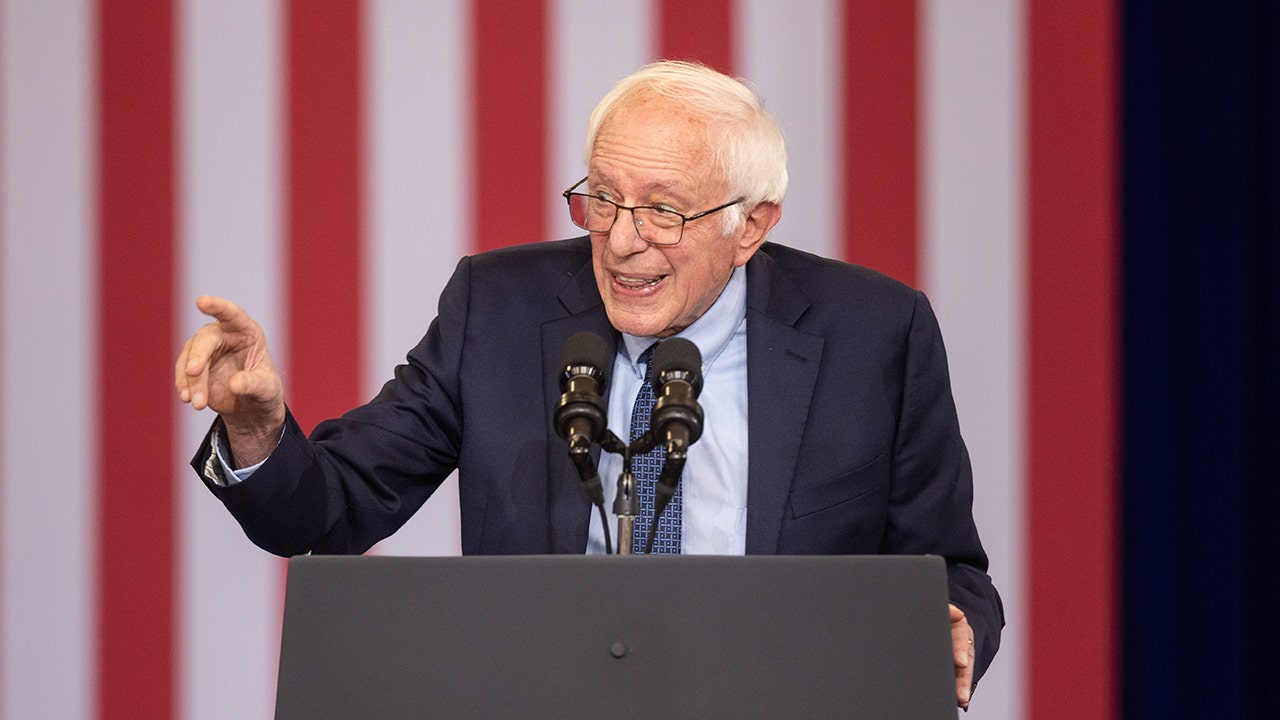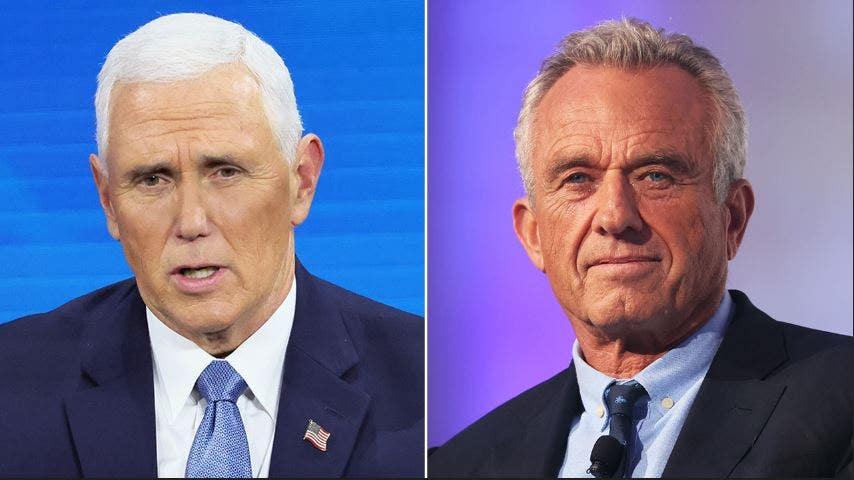Russian President Vladimir Putin and North Korean supreme leader Kim Jong Un signed a mutual aid pact on Wednesday, bringing the two nations closer than ever since the fall of the Soviet Union.
The pact, which both leaders emphasized is a landmark agreement between the countries, reportedly covers defensive security, humanitarian relief, trade and investment concerns.
Putin thanked Kim on Wednesday for North Korea’s “unwavering support” of the ongoing invasion of Ukraine.
North Korean supreme leader Kim Jong Un, left, and Russian President Vladimir Putin attend a welcome ceremony at Kim Il Sung Square in Pyongyang, North Korea. (Photo by GAVRIIL GRIGOROV/POOL/AFP via Getty Images)
U.S. Secretary of State Antony Blinken on Tuesday claimed Putin’s visit was part of a desperate attempt to maintain international allies despite the increasingly drawn out invasion.
“We’ve seen […] Russia try, in desperation, to develop and to strengthen relations with countries that can provide it with what it needs to continue the war of aggression that it started against Ukraine,” said Blinken.
He added that the U.S. will “do everything we can to cut off the support that countries, like Iran and North Korea, are providing.”
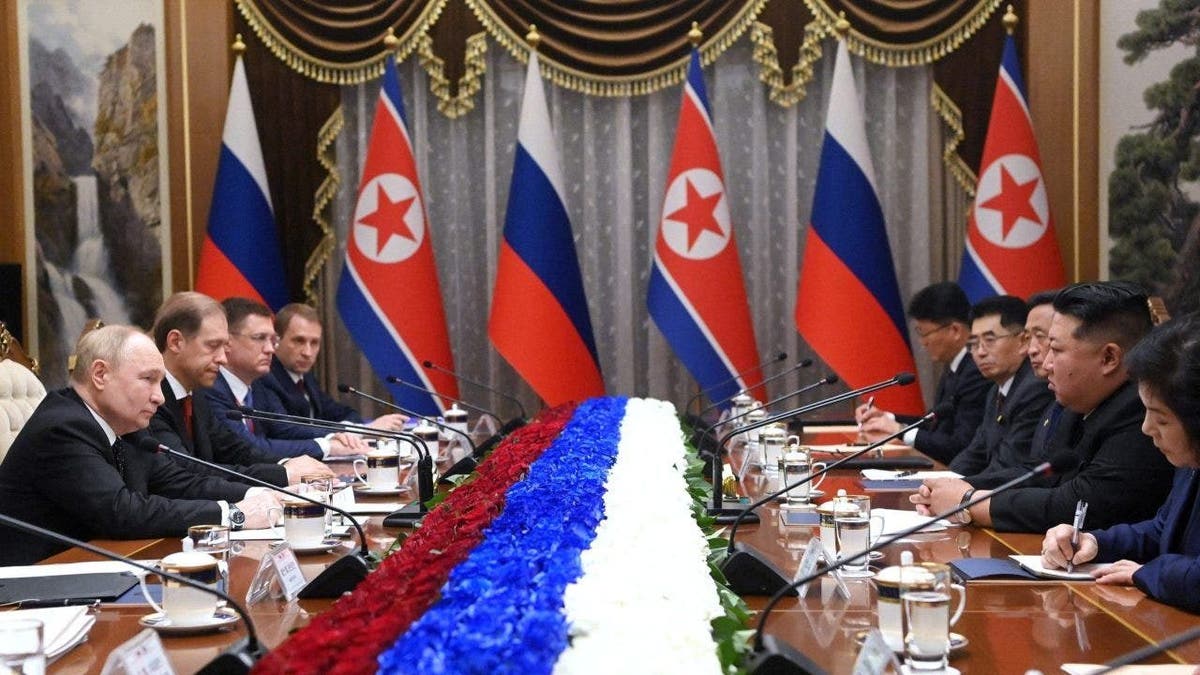
North Korean leader Kim Jong Un, right, listens to Russian President Vladimir Putin during their meeting in Pyongyang, North Korea. Putin received a red carpet welcome, a military ceremony and an embrace from Kim during a state visit to Pyongyang, where they both pledged to forge closer ties. (KRISTINA KORMILITSYNA/POOL/AFP via Getty Images)
Kim has been enthusiastic about building associations with Russia and China in order to build international legitimacy despite his country’s dismal human rights record.
The hermit country has worked to supply munitions and other military resources to the Russian military since the beginning of the war against Ukraine. Weapons baring marks that indicate North Korean manufacturing have been recovered by the Ukrainian military.
Putin last visited North Korea in 2000, when the hereditary dictatorship was under the control of Kim’s father, Kim Jong Il.
CLICK HERE TO GET THE FOX NEWS APP
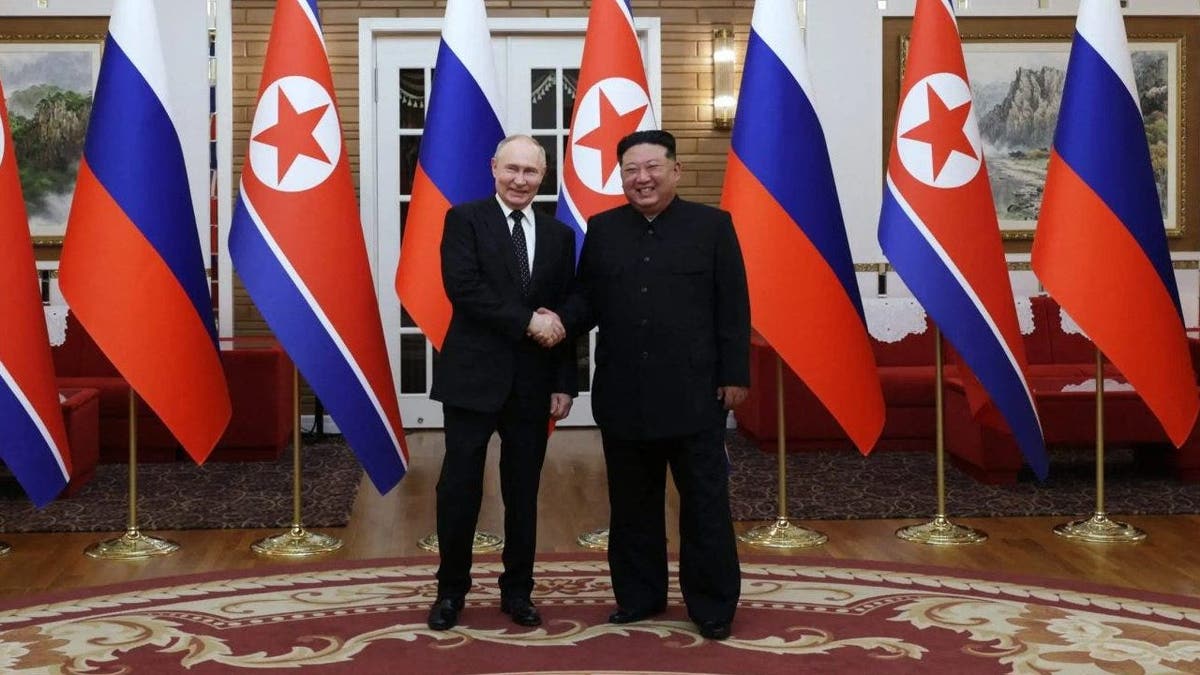
Russian President Vladimir Putin, left, shakes hands with North Korean leader Kim Jong Un during a meeting in Pyongyang, North Korea. (GAVRIIL GRIGOROV/POOL/AFP via Getty Images)
North Korea, officially known as the Democratic People’s Republic of Korea, was founded in 1948 with direct influence from Soviet dictator Josef Stalin.
The Kim family — sometimes referred to as the Mount Paektu bloodline — is the hereditary dictatorship of the country founded by communist revolutionary Kim Il Sung.
North Korea operates under the state ideology of Juche, a quasi-communist worldview founded on a cult of personality and enthusiastic nationalism.


